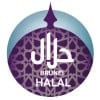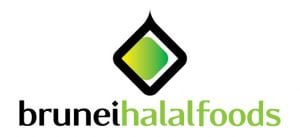
BANDAR SERI BEGAWAN
Thursday, December 16, 2010
Since the beginning of the year, restaurant owners in Brunei have been urged to apply for the Halal certificate to give Muslim customers more confidence to dine at their restaurants, as concerns have been raised by the Brunei Islamic Religious Council regarding lack of local restaurants bearing the Halal logo.
“For a country that adheres to the teachings of Islam and with a majority of its population Muslims, there are still a lot of restaurants and eateries in Brunei that make and prepare food without possessing a halal certificate and logo, in accordance to the Halal Label Order 2005. Furthermore, the majority of restaurants operating in Brunei are Muslim restaurants or Muslim-owned restaurants,” said Dato Seri Setia Hj Abdul Rahman Pehin Khatib Abdullah, director of the Department of Syariah Affairs Halal Food Control Division under the Ministry of Religious Affairs.
With the enforcement of the Halal Label Certificate and Halal Label Order 2005 in August last year, restaurant owners and food outlets are required to obtain their halal certificates for their respective establishments. The Order was implemented to ensure all eateries which cater food and drink to be consumed by most Muslim diners are 100 per cent halal.
“Many Muslim restaurant owners simply make the assumption that they do not need to apply for the certification because they are Muslim restaurants. However, the issue here is whether or not these Muslim food operators are aware if the food ingredients they use everyday are 100 per cent halal? Whether their ingredients might have been imported from non-Muslim countries, for instance. Most of them do not question the halal certification stamped by the producing company and not by a certified Islamic body,” he added.
One of the advantages of obtaining a Halal Certification is that restaurants with halal certificates are likely to see more business as the stamp would assure customers the establishments strictly comply with halal guidelines.
During a roadshow on the halal certificate in Tutong, Dato Hj Abdul Rahman said that application for halal certification can benefit restaurant owners to become better establishments. He added that restaurants displaying the certificates at their premises can boost confidence of many local and even foreign diners and ultimately boost business.
He cited an observation made in Singapore, where he said the halal logo and certificate were popular among the restaurants there, including the large, branded international restaurants and cafés.
“For a country where only 15 per cent of the population are Muslims, the relevant eateries are rigorous in obtaining their premises halal-certified.
There was a case where this one particular restaurant in Singapore almost shut down, but after applying for a halal certificate, the restaurant flourished and opened up several new branches in the country,” he said.
“So we can see that halal food and drink are not exclusively for Muslims only. It can be enjoyed by all people, regardless of race and religion. Many people want to enjoy the benefits of halal-certified food because many now start to become more aware of the quality of the process and preparation of food compared to the non-certified ones,” he added.
According to Chapter 4 (1) under the Halal Label Order, any Muslim or non-Muslim business owner is qualified to apply for certification, as long as he employs at least two halal food supervisor at the premises.
“The business owner must make sure that his or her restaurant has at least two Halal Food Supervisors who have been approved by the Brunei Islamic Religious Council (MUIB). The more supervisors the better, but it has to be a minimum of two,” said Hjh Rabiatul Adawiyah Hj Ahmad, Education Officer at the Halal Food Control Division under the Ministry of Religious Affairs’ Syariah Affairs Department.
She said the chosen candidates will undergo a series of tests organised by MUIB before they can be promoted as Halal Food Supervisors at the respective establishments.
To date, there are 16 restaurants which already have the halal certificates, and according to the Halal Food Control Division under the Ministry of Religious Affairs’ Syariah Affairs Department, more restaurants will receive their certificates in the coming weeks.
Restaurants who applied for the certification will undergo several inspection on all of their ingredients and products, before they are officially certified as a halal outlet by the council.
The Royal Brunei Catering (RBC) was the first restaurant which has been officially accredited with the Halal certificate after completing the requirements set by the council. The restaurant has successfully undergone several inspection on all of their ingredients and products, before it officially certified as a Halal outlet by the council on July, 2009.
According to previous reports, a total of 30 Halal products from RBC Express Fast Food went through Halal products audit which were conducted by Halal Audit representatives from Religious Office, Majlis Mufti and the Department of Agriculture.
Shikai Restaurant Sdn Bhd, popularly known for its fusion Chinese cuisine, is one of the few restaurants currently awaiting halal certification from the ministry. The restaurant is committed towards obtaining the certification and believed that having a halal certification can boost its business.
“From the time we first opened our doors in 2005, Shikai has always served Halal food. But we realised the benefits of having the proper Halal certification, which can further boost the confidence of Muslim diners into our restaurant. This is especially true as proven by the various restaurants which obtained such certifications,” said Fadli Dato Yusoff, Marketing Director of Shikai Restaurant Sdn Bhd.
“The process requires looking through a lot of details which I think is a good thing; we had to list down each and every products or ingredients we use for our cooking, our cooks examined for their methods of preparation and so on. We’ve already submitted all that and now we’re waiting for reply,” said Fadli.
Food and beverage businesses could speed up the process of obtaining a halal certificate by starting from their ingredients, as highlighted by Tutong District Officer Hj Muhammad Suffian Hj Bungsu.
“Time is of the essence here, but it really depends on the ingredients that they use,” he said during a Halal Branding and Certification roadshow in Tutong earlier this year.
He cited the example of the Tarindak d’ Seni restaurant in the Brunei Arts and Handicraft Training Centre on Kampong Ayer which has over 200 menus that needed to be certified halal. “One menu each consists of at least five ingredients so they have to audit those ingredients (to see) whether they are halal or not, so that’s part of the reason why it takes time.” The process could be expedited, he suggested, if the products or ingredients being used were already certified halal, whether it is from a foreign certifying body such as halal-certified flour imported from Malaysia.
A local halal certification consultancy affiliated with the government was also formed recently to speed up the process involved for a restaurant seeking the Brunei halal certificate stamp.
Latip Ghariff, director of ha Management Services, said Fratini’s Restaurant in Gadong has become one of the first restaurants in a batch of 10 to be awarded the Brunei Halal certificate via the company’s services.
As an intermediary body, ha Management said in September that more than 10 restaurants, not including their branches, are now in the process of getting the Brunei Halal certification from the Ministry of Religious Affairs via the consultancy.
The charges to help facilitate the Brunei Halal Certification processes depend on the establishment, said Latip, with a minimum fee of $1,500 and depends on the menu of the establishment. The consultancy is also in the process of facilitating the halal certification for a locally made product amongst other ventures.
When asked if there was potential for Brunei to venture into halal manufacturing of restaurants to sell overseas, Latip agreed, saying, “That would be the idea. I’m very sure some agencies in the government are very much looking into this, bringing in manufacturers to Brunei.”
“Manufacturing in Brunei would definitely be of interest to Brunei as this would lead to foreign direct investments and it would secure and guarantee the “halalness”, he added. The Brunei Times



